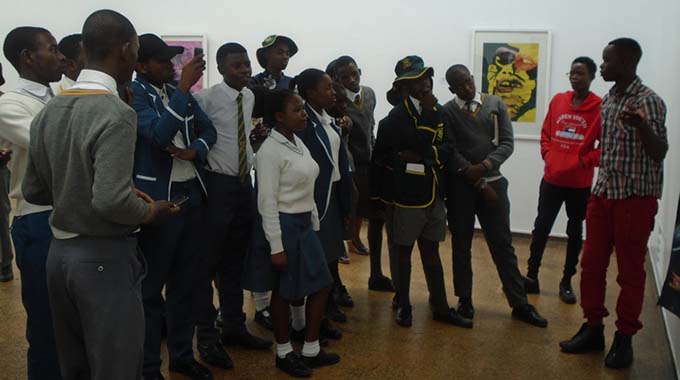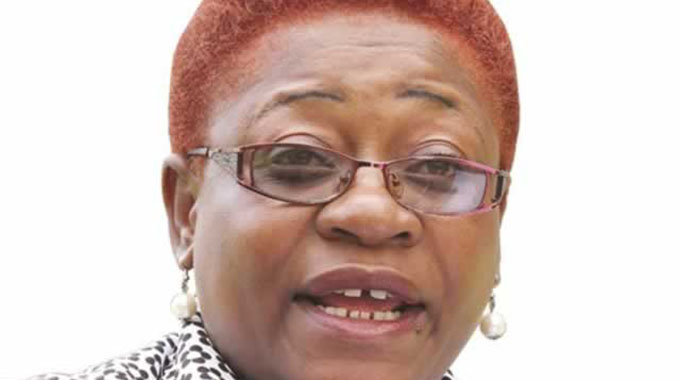Cultural heritage under spotlight at national gallery

At the Gallery
The National Gallery of Zimbabwe is not confined to presentation, promotion and conservation of Zimbabwe’s contemporary art and visual heritage, but has extended arms in educating, informing and training teachers through workshops.
Aimed at imparting knowledge to the art education enthusiast, the National Gallery of Zimbabwe on March 28 hosted a two day-Art Teacher’s Workshop on Early Childhood Development (ECD). A workshop is a meeting at which a group of people engage in intensive discussion and activity on a particular subject.
The National Gallery of Zimbabwe is a heritage institution. Heritage Institutions are organisations that work within a sub culture for the preservation and promotion of culture and heritage. The introduction of the new curriculum introduced heritage studies which focuses on the relationship between people and tangible and intangible heritage through the use of social science research methods
The Ministry of Primary and Secondary education introduced a new education curriculum that makes art an essential part of the curriculum.
The new curriculum aims to prepare learners for a largely entrepreneurial economy in our increasingly globalised environment, encourage lifelong learning and promote patriotism, participatory citizenship and sustainable development among other objectives. Education as a part of culture has the twin functions of conservation and modification or renewal of the culture and is thus conceived as a systematic effort to explore and promote culture.
In its technical sense education is the process by which society, through institutions such as schools, colleges, universities, deliberately transmit its cultural heritage, its accumulated knowledge, values and skills from one generation to another. Education is an instrument of cultural change. Education can impart knowledge, training and skills as well as inculcate new ideas and attitudes among the young.
It is through culture that education germinates and flowers. In turn through that education exerts a nourishing influence.
Art helps build innovation and creativity therefore is intrinsic to a balanced education system. Child development aspect among preschools is a solid foundation for a country’s development. the period of early childhood development has a strong and positive impact on further development and children`s learning in later ages.
Art spaces are of importance to society as they promote, preserve and conserve cultural heritage. ECD can contribute significantly to nurturing of young children at various levels including physical, social, emotional, intellectual, cultural and spiritual.
The two day workshop was meant for Early Childhood Development (ECD) and junior school teachers. ECD and junior schools are bedrock of any education that genuinely seeks to empower a people. Each school was expected to send two participants, one from ECD and one from junior school who would then get back to their respective schools and share what they will have gained at the workshop with their colleagues.
Emphasis was on the step by step concept building for the young learners Cultural Heritage, Source of Heritage material in the classroom and use of alternative art materials for art making. The workshop enlisted a diverse group that contributed a range of perspectives, various art genres, life experience, and teaching environment.
The workshop was categorised into discussions and presentations led by men and women of professional expertise in particular topics.
It covered both the practical aspect and theory of the following themes figure drawing, print making, painting, mixed media, sculpture, still life setup among others.
Workshop themes were grouped in accordance with days for example Day one topics for discussion included thinking creatively with art, communicating through art, and knowledge of the language of art. Day two included discussions about art, connecting with art, creating art and use of alternative art materials for art making.
The workshop enabled participants to gain expertise from Gallery educators, curators, and content experts, through Gallery talks, discussion groups, and presentations.
It also enable participants to learn how to use Zimbabwean art in the classroom to foster critical thinking skills and deepen student engagement with content and to make interdisciplinary connections between Zimbabwean art, social studies, history, and language arts. The workshop explored how to plan and Develop ideas with peers.
Recently, the Permanent Secretary in the Ministry of Education, Dr Sylvia Utete Masango stressed that the Education System needs to lose its rigidity and allows for students who fare less in STEM subjects explore Art. This move would be, in her statement a means to consummate the best from all learners within the country
The cultivation of all areas of knowledge lead to a more dynamic and viable society in which all talents are fully exploited for the development of the economy of the country.
The National Gallery of Zimbabwe will continue to be a resource for teachers with regards to the new curriculum as it will host another workshop of the same calibre next month.







Comments